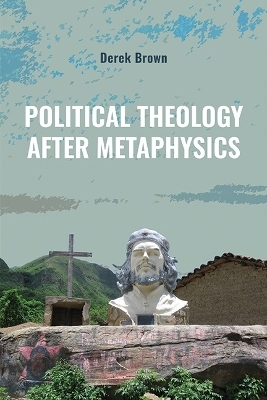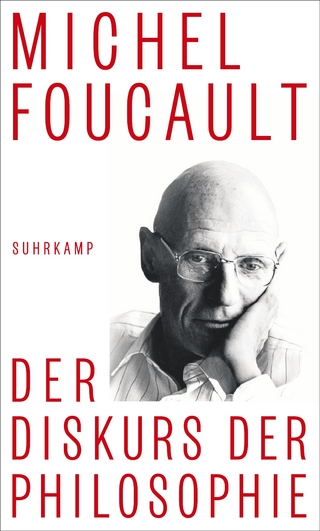
Political Theology after Metaphysics
Seiten
2023
State University of New York Press (Verlag)
978-1-4384-9586-6 (ISBN)
State University of New York Press (Verlag)
978-1-4384-9586-6 (ISBN)
Argues for a revolutionary political theology that can be used to combat racism, sexism, and other forms of oppression.
In Political Theology after Metaphysics, Derek Brown argues that theologians and religious believers should pursue a revolutionary political theology that can address racism, sexism, and other forms of oppression in practical ways, rather than following the sorts of metaphysical theologies that have dominated theological discourse since at least the scholastic period. Relying primarily on Marxist and deconstructive critiques of the ideological function of metaphysics, the book engages a wide range of classical and contemporary figures, including Karl Marx, Søren Kierkegaard, Carl Schmitt, Jacques Derrida, James Cone, Chantal Mouffe, Cornel West, Martin Hägglund, and Karl Ove Knausgård. These engagements are attentive not only to the ways in which these figures critique or defend metaphysics, but also to the ways in which they perform political theologies responsive to those critiques. While the so-called postmodern critique of metaphysics—which Brown problematizes as insufficiently critical of political ideology—is often read as a challenge to religion, Brown’s readings suggest that the deconstructive and Marxist critiques of metaphysics present an opportunity for the reemergence of a historical and politically engaged form of religion.
In Political Theology after Metaphysics, Derek Brown argues that theologians and religious believers should pursue a revolutionary political theology that can address racism, sexism, and other forms of oppression in practical ways, rather than following the sorts of metaphysical theologies that have dominated theological discourse since at least the scholastic period. Relying primarily on Marxist and deconstructive critiques of the ideological function of metaphysics, the book engages a wide range of classical and contemporary figures, including Karl Marx, Søren Kierkegaard, Carl Schmitt, Jacques Derrida, James Cone, Chantal Mouffe, Cornel West, Martin Hägglund, and Karl Ove Knausgård. These engagements are attentive not only to the ways in which these figures critique or defend metaphysics, but also to the ways in which they perform political theologies responsive to those critiques. While the so-called postmodern critique of metaphysics—which Brown problematizes as insufficiently critical of political ideology—is often read as a challenge to religion, Brown’s readings suggest that the deconstructive and Marxist critiques of metaphysics present an opportunity for the reemergence of a historical and politically engaged form of religion.
Derek Brown is Instructor of Writing at Koç University.
Acknowledgments
Introduction
1. Polemical Ontology: Carl Schmitt’s “Decisionism” Is Not What It Seems
2. Deconstructing Theology, Constructing Faith?
3. Belonging to the World: Karl Ove Knausgaard’s Secular Love
4. Orthodoxy Is Orthopraxy: Kierkegaard’s Relation to Marx Reconsidered
5. God Is and Is Not Black: Black Theology, Marxism, and the Relationship between Race and Class
Conclusion: St. John Brown
Notes
Bibliography
Index
| Erscheinungsdatum | 05.12.2023 |
|---|---|
| Reihe/Serie | SUNY series in Theology and Continental Thought |
| Zusatzinfo | Total Illustrations: 0 |
| Verlagsort | Albany, NY |
| Sprache | englisch |
| Maße | 152 x 229 mm |
| Gewicht | 227 g |
| Themenwelt | Geisteswissenschaften ► Philosophie ► Philosophie der Neuzeit |
| Geisteswissenschaften ► Religion / Theologie | |
| ISBN-10 | 1-4384-9586-2 / 1438495862 |
| ISBN-13 | 978-1-4384-9586-6 / 9781438495866 |
| Zustand | Neuware |
| Haben Sie eine Frage zum Produkt? |
Mehr entdecken
aus dem Bereich
aus dem Bereich


